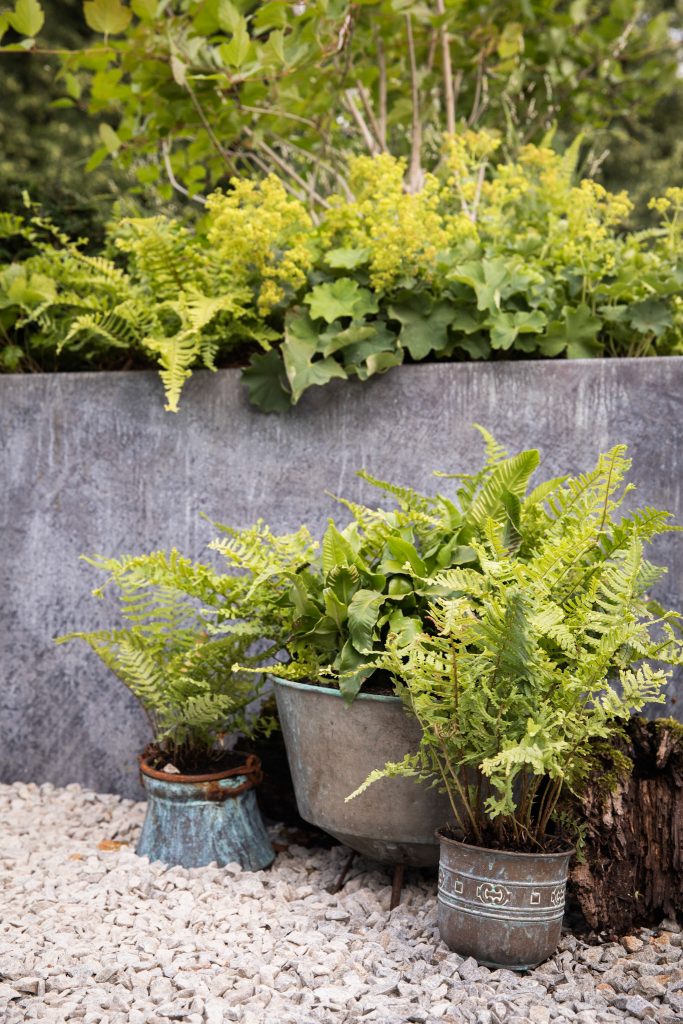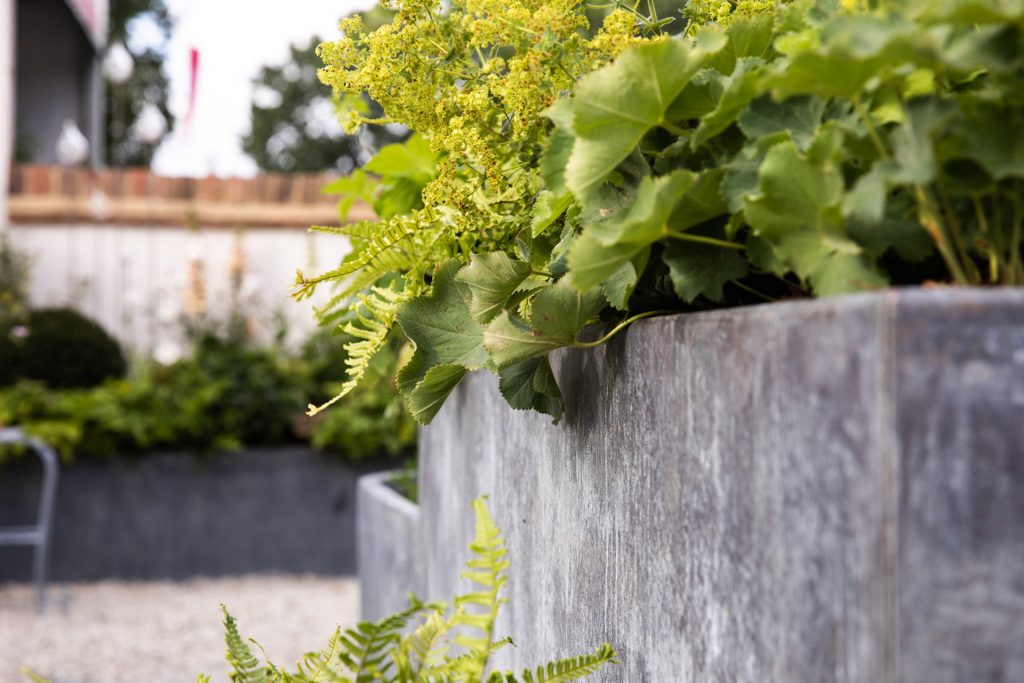Are metal planters good for plants?
Are metal planters good for plants?
Metal planters and raised beds are increasingly being used in garden settings. There are many different types of metal finishes to choose from and each have their own unique pros and cons related to things like cost, appearance, and longevity. Popular types of metal and finishes available include mild steel, powder-coated steel, galvanised steel, and the distinctive corten steel.
In this guide, we’ll explore the key considerations of metal containers and their suitability for supporting your plants’ growth.
Contents
Durability
Metal raised garden beds and planters will almost always last longer than most other materials. Terracotta pots can crack in cold weather or if dropped; plastic pots can split; while wooden raised beds will rot, often in less than a decade. Steel, meanwhile, should last many years. Corten steel, galvanised steel, and powder-coated steel should last for decades in most environments with the right care. Untreated mild steel will corrode a lot quicker but is slightly cheaper to purchase upfront.
Heat conductivity
Metal containers are highly effective at conducting both heat and cold, potentially leading to overheating or freezing of plant roots during severe weather conditions. Generally, the smaller the container the more vulnerable it is to extreme temperatures.
If you are concerned about excessive heat or cold then lining the inside of planters with insulation board can effectively create a barrier between the soil and the metal surface. Furthermore, ensuring your plants are adequately watered on hot, sunny days can help maintain soil temperature at a safer level and provide necessary hydration. For added protection during extreme weather, relocating smaller containers to a sheltered spot can also help to protect your plants.
Environmental considerations
Because of its longevity and ability to be recycled, steel can be seen as an environmentally friendly option. It is true that it takes quite a lot of energy to make upfront, although this may well be electricity from renewable sources, but it will have a much longer lifespan compared to planters made from less durable materials. This reduces the frequency of replacement and, consequently, the amount of waste generated over time.
Another factor is that wood or plastic can cause issues with soil contamination. There is a growing body of knowledge related to microplastics and their prevalence in the environment and the food chain, partly as a result of the decomposition of plastic. Wood, meanwhile, is often treated with some kind of chemical to extend its life. Depending on the type of treatment, some of this could leach into soil where you might be growing your vegetables.
Metal, meanwhile, is unlikely to leach anything harmful. Elements such as zinc and iron that could leach in small amounts are important micronutrients for plants anyway. Metal is probably one of the safest materials that you could make your veggie raised bed out of.
Drainage
Good drainage is vital for plant health. One of the surest ways to kill most plants (other than lack of water) is to make them sit in permanently waterlogged soil, causing root rot. Our metal troughs and planters come with drainage holes drilled ready for you or can be raised up off the ground on feet. This helps to ensure that excess water can escape quickly.
Cost
At first glance, metal planters and raised beds may appear a bit expensive. However, when you consider that a metal raised bed may last two, three or even four times as long as a wooden one but only costs slightly more initially it becomes clear that it can actually be an excellent long-term investment. Not only might it cost less but there will be no labour and hassle involved in replacing it every few years and no piles of half-rotted timber to get rid of.
Versatility
Our large range of metal containers come in a wide array of shapes, sizes, and specifications. You can have them bottomless or raised up on feet; with or without drainage holes; with a single or double-folded top lip; round, rectangular, or even elliptical shaped; and in a huge range of sizes tailored to the needs of your space.
Corrosion resistance
There are also the different types of metal available. You may choose the weathered look of corten steel, which helps to resist corrosion by creating a rust-like patina over its surface that gives it the distinctive look. Our galvanised steel pots, meanwhile, are coated with a layer of zinc that provides protection against corrosion for decades. The powder-coated metal planters and troughs provide protection against corrosion by using a zinc-rich primer and a polyester top coat on the inside and the outside for extra protection.

Pest resistance
Metal planters offer an excellent barrier against many common garden pests. Their non-porous nature makes them resistant to the destructive activities often seen with burrowing animals and various insects that target wooden or plastic containers. This makes metal planters a durable and low-maintenance choice for gardeners looking to minimize pest-related issues.
Final Thoughts
So, in summary, metal raised beds and planters are excellent options to help your plants thrive. They may be more expensive upfront than some of their competitors, but in the long term, they are likely to make up for that as they last so much longer than the likes of wood and plastic. They are also safe to use, look sleek and stylish, and come in a wide range of shapes and sizes to suit the needs of your garden or outdoor space.
